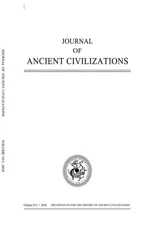ABSTRACTS
2018-01-23
Gábor ZÓLYOMI(ELTE Eötvös Loránd University, Budapest)
E-ANA-TUM AND THE RULER OF ARAWA (pp. 141-163)
In the inscriptions of E-ana-tum, ruler of Lagaš, listing his victories over various cities, there is a four-line long passage that describes E-ana-tum's defeat over the city called Arawa. The translations of this grammatically difficult passage vary greatly; there seems to be no agreement either about its exact meaning or about its grammatical analysis. This paper first evaluates the translations and analyses proposed so far, and in the second part it offers a new translation. This translation is based on a new grammatical analysis of the passage that takes into consideration not only verbal and nominal morphology and syntax, but also the information-structure of the passage.
Victor GYSEMBERGH(FU Berlin)
HIPPARCHUS AND THE “ANCIENTS:” NECHEPSOS-PETOSIRIS?(pp. 165-179)
In his Commentary to the Phaenomena, Hipparchus of Bithynia refers four times to the “Ancients.” It is argued that at least one of these references, to a sevenstar asterism of the Ursa constellation, points towards Egyptian astronomy.Further, that Hipparchus was in fact referring to the astral compendium ascribed to Nechepsos and Petosiris. This is then assessed as evidence of intercultural knowledge-transfer in Hellenistic science.
RESEARCH SURVEY: ANCIENT LAW
Law is a key factor of understanding ancient societies. Though studies on law have often, and for a long time, been undertaken by legal historians, mainly in Law Departments, they did not substantially affect historical studies. This is particularly due to specific terminologies and frameworks of ancient laws,and modern attempts to systematize ancient legal cultures in a mere juristic sphere, rather than to look at the respective historical context. The present survey offers new perspectives on, and approaches to, understanding the mutual interdependencies between law and the respective ancient society. Experts present theoretical and methodological considerations, recently discussed models and newly published research literature that might shape our understanding of ancient legal cultures in the next decades. In part 1, Sven Günther offers introductory remarks and examines some new trends in Roman Law Studies while Edward M. Harris comprehensively guides readers to recent developments in Greek Law Studies.
Sven GÜNTHER(IHAC, NENU, Changchun)
INTRODUCTION: LEGAL STUDIES IN THE 21ST CENTURY(pp. 181-186)
Edward M. HARRIS(University of Durham / University of Edinburgh)
SOME RECENT DEVELOPMENTS IN THE STUDY OF ANCIENT GREEK LAW(pp. 187-266)
Sven GÜNTHER(IHAC, NENU, Changchun)
ROMAN LAW: OPENING THE SYSTEM(pp. 267-282)
Contact Information
Postal Address:
Journal of Ancient Civilizations (JAC)
Institute for the History of Ancient Civilizations (IHAC)
Northeast Normal University
5268 Renmin Street, 130024 Changchun, Jilin Province
People's Republic of China
e-mail: jac@nenu.edu.cn
Website: http://ihac.nenu.edu.cn/
Copies of JAC are available from IHAC for $34 or €34.
Cheques should be made payable to Dr. Xueliang SHI.
We also seek exchange with other journals in our fields of study.
